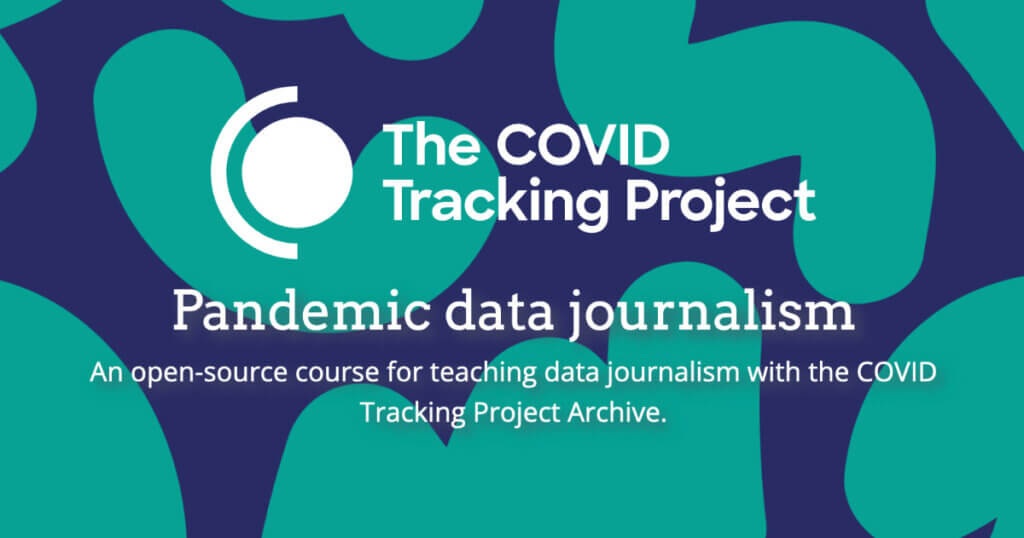This announcement was authored by the COVID Tracking Project Archive data journalism consultant Tyler Dukes.
Journalism instructors now have access to a new, free resource designed to help students learn hands-on lessons from the massive volunteer effort to track COVID data in every state during the first year of the global pandemic.
The Data Journalism Course-in-a-Box uses publicly available materials from the COVID Tracking Project Archive, housed at the University of California, San Francisco Archives and Special Collections, as a guide to teach the conceptual foundations of data journalism. The open-source set of five modules contains lecture materials, class exercises, technical walkthroughs, pacing guides, and other content that can be taught from start to finish in a stand-alone course or integrated into an existing course.
The course materials were written, developed and hosted using an open-source platform from Peer 2 Peer University that can be duplicated and customized for the needs of individual instructors.
Although the content of the course is targeted primarily toward data journalism educators at the undergraduate level, the materials are open for use to anyone interested in learning or teaching data journalism.
Central to the course materials are the archival contents of the COVID Tracking Project (CTP), a volunteer collaboration between journalists, public health workers, technologists, students, and hundreds of others who stepped up to painstakingly collect, verify and publish state-level data on the spread of COVID at a time when the federal government failed to do so on its own. The project’s archive provides unparalleled insight into the complexity of data journalism and the power it can have to inform the public.
“Data journalism is about more than just mastering technical skills – it requires learning to grapple with the complexities and shortcomings of numerical information.”
Tyler Dukes, data journalism consultant
Contained within the Course-in-a-Box’s lesson plans are exercises that help students and instructors use the CTP data on case outcomes, nursing home outbreaks and impacts on race/ethnicity to master essential data journalism technology, like spreadsheets and the statistical programming language R. Archive screenshots from state COVID dashboards and oral histories from dozens of volunteers behind the effort help guide in-depth discussions about how data is collected, how it can be flawed, and how it can affect audiences and journalists. And a broader understanding of the nature of the CTP helps students grasp both the effort’s impact and how its lessons can be applied to future journalism work.
“Data journalism is about more than just mastering technical skills – it requires learning to grapple with the complexities and shortcomings of numerical information,” Tyler Dukes, the archive team’s data journalism consultant, said. “Few reporting efforts engaged with those complications and limitations as effectively as the COVID Tracking Project, and its archive material presents instructors and students with a unique opportunity to learn from one of the most impactful public service journalism projects of a generation.”
The Course-in-a-Box project was funded by a data engagement award from the National Network of Libraries of Medicine Region 5 under the direction of USCF Archivist and Associate University Librarian for Collections Polina Ilieva, the UCSF Library, and partially by the Alfred P. Sloan Foundation (Sloan grant G-2022-17133).
The Course-in-a-Box project is indebted to the work and feedback of advisory board members and data journalism experts and educators.

